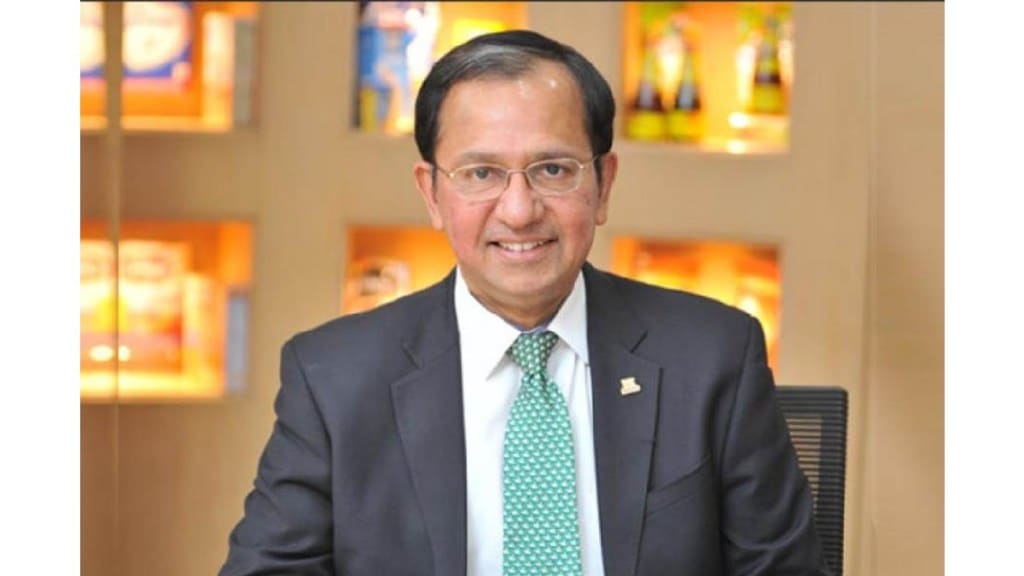Suresh Narayanan, who took over as managing director and later chairman of Nestle India in August 2015 during the peak of the Maggi crisis, retires on July 31 after nearly a decade at the helm and 26 years with Nestle. In a wide-ranging conversation with Raghav Aggarwal, Narayanan reflects on the evolving FMCG landscape, the company’s transformation, and what’s next for him. Excerpts:
How has the FMCG sector changed during your tenure?
There’s been a big shift in consumer behaviour. Aspirational India isn’t confined to metros anymore, rather it’s spread across rural and urban areas alike. Consumers are now more focused on quality, safety and nutrition. Earlier, “paisa vasool” ruled; today it’s about getting value with quality. Post-COVID, nutrition credentials have gained prominence. Digital is no longer optional, it’s essential for both operations and consumer engagement. Premiumisation is here to stay, with meaningful potential across categories. And sustainability and social responsibility have become key factors in how consumers judge companies.
Where does Nestle India stand in the current environment?
We’ve transitioned from being an urban-focused company to a more balanced one. Since 2016, we’ve added 1.3 million outlets. In fact, in 2024, we added the most outlets among FMCG companies in terms of direct distribution. Our RUrban strategy is starting to pay off. Today, rural makes up about 20% of our business. In the next few years, I see that growing to 30%, maybe more. People across the country want similar quality products, so it’s now about ensuring consistent availability through the right channels.
Do you expect a further recovery in demand?
Yes. Recent data suggests FMCG growth has slowed from 12–13% to 2–3%, but we’re seeing a modest recovery now, especially in urban areas. Rural demand will hinge on monsoon outcomes and agri-income, both of which look promising. Government measures, like tax reliefs and infrastructure spending, will help. So I do expect volume-led recovery in the quarters ahead.
Will that mean price cuts too?
Price is the last lever we use. We try to mitigate cost pressures through scale and value engineering first. But in the last 18 months, input inflation left little choice. Categories like milk were stable, but most others weren’t. Now that inflation is easing, we can focus more on innovation and delivering value, thus supporting premiumisation and stimulating consumption.
Which categories will drive the company’s future growth?
Volume growth will largely come from prepared dishes, cooking aids and chocolates. Value growth will be driven by milk, nutrition, and coffee. New businesses like Nespresso, pet care and breakfast cereals will begin contributing meaningfully. Our health science joint venture with Dr Reddy’s has also started well.
What challenges will your successor Manish Tiwary face?
I believe I’ve left behind a company that’s future-ready and primed for growth. The foundation is strong in terms of people, processes and purpose. Manish brings excellent digital and tech expertise, which will help accelerate ongoing initiatives. That said, volatility is part of doing business in India. The real test will be setting ambitious growth goals while adapting to a rapidly changing environment. There’s plenty of headroom, both in existing and new categories.
Looking back, what were your biggest takeaways from the Maggi crisis?
Crises never come with warning signs. The Maggi episode taught me several things. First, you must always communicate transparently and consistently. Consumers don’t just want facts, they want reassurance. Second, fixing perceptions is harder than fixing facts. Third, keep employees and stakeholders engaged throughout. Lastly, recovery is never automatic. You have to fight for it, earn back trust and work relentlessly.
How has Nestle changed post that crisis?
We’ve become more transparent and communicative. We’ve also built internal systems to detect early signals and respond quickly. Our stakeholders, like suppliers, distributors, now actively participate in addressing issues. During the recent sugar controversy, we responded in real time. That agility is now embedded in the system. Can we fully avoid crises? Probably not. But we are far better prepared now.
What’s next for you personally?
After 44 years of work, I look forward to a slower pace. I hope to take on a few teaching assignments at business schools and contribute on select boards. I also want to travel, but not for work this time, but for wellness and personal exploration. And of course, spend more time with family. I’ve been very fortunate in my career as HUL, Colgate and Nestle have all shaped me. It’s been a blessed journey, and I’m grateful for the trust and respect people have given me along the way.

